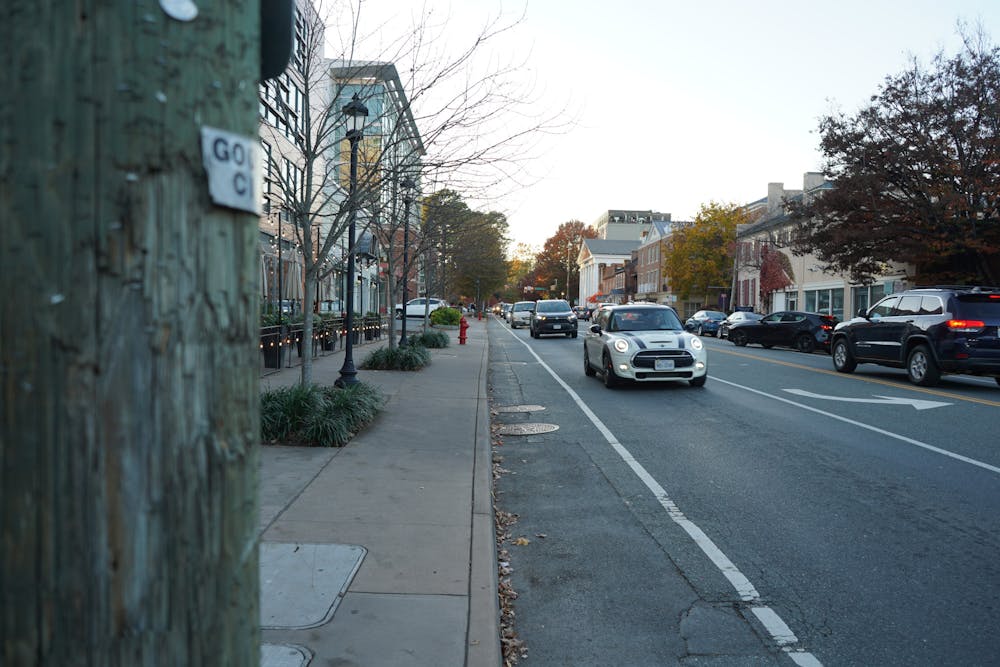As City Council assesses several alternative fuel sources for use in its transit system, a petition promoting zero-emissions buses has gained traction. The Council is expected to vote this October on which fuel source to implement in the new buses.
The Community Climate Collaborative, a local organization that strives to fight climate change across central Virginia, collaborated with several other community organizations including Livable Cville, the Legal Aid Justice Center and the Amalgamated Transit Union to create the petition, which advocates for battery-electric buses — a specific type of battery-powered zero-emissions bus.
Charlottesville Area Transit system currently uses buses that are diesel-operated and powered by internal combustion engines. When diesel is burned in these engines, pollutants such as particulate matter and carbon monoxide are emitted.
According to City Council member Michael Payne, the consideration of an alternative fuel source would initially be implemented on a small scale, with five buses transitioning to the new fuel source. Payne said this transition should minimize disruption.
“I think in terms of cost, there's not a huge difference,” Payne said. “The federal government, regardless of the type of fuel type of bus we were to go with, would cover most of the cost. Depending on the choice [between fuel options], there could be a difference in terms of the upfront infrastructure costs needed [for zero-emissions goals],” Payne said.
Along with battery-electric buses, the city is considering two other fuel technology options — a hydrogen fuel cell electric bus and a compressed natural gas bus. The hydrogen fuel cell option offers another zero-emissions solution, while the compressed natural gas option would still cause a near-zero amount of nitrous oxide.
Katie Ebinger, C3 climate justice policy manager, said the organization advocates for battery-powered buses as the best choice due to various public benefits including carbon reduction and climate improvement.
“If folks want to see a kind of cleaner transit system and we really want to meet our carbon reduction goals as a community, signing this petition … is a really great way to do that,” Ebinger said. “It's not often that we have decisions in front of us that give us such big climate opportunities, and this is one of those moments.”
In addition to environmental effects, C3 leaders behind the petition argue that battery-electric, zero-emissions buses would replace health risks associated with internal combustion engines, ranging from asthma to death. The petition also includes several negative social implications of diesel-operated systems, such as adverse effects on pollution.
The petition states that these concerns may be mitigated through both offering a path towards a healthier environment and addressing societal imbalances in pollution.
C3 assessed the process of implementing its zero-emissions plan through feedback from transit operators already using battery-electric buses.
“We learned some really great strategies [through feedback], and it makes us really confident that the city wouldn't need to see a disruption in service or other day to day operations of their bus system by choosing a sustainable option,” Ebinger said.
In addition to holistic climate and health benefits, secondary effects of a zero-emissions strategy could lead to positive effects on a daily basis, Ebinger said. An increase in community support of public transportation could lead to less traffic congestion in Charlottesville.
James Van Vranken, a Livable Cville member who worked on the petition, said the petition’s goals align with the Livable Cville’s main priorities.
“That's what we hope the future of Charlottesville's climate-friendly transit looks like — that more people will want to take the bus instead of driving their car,” Van Vranken said in a written statement to The Cavalier Daily.
Members of the public can register for a webinar about alternative fuel buses hosted by C3 at 12 pm on Sept. 26 here, and watch City Council meetings here.







